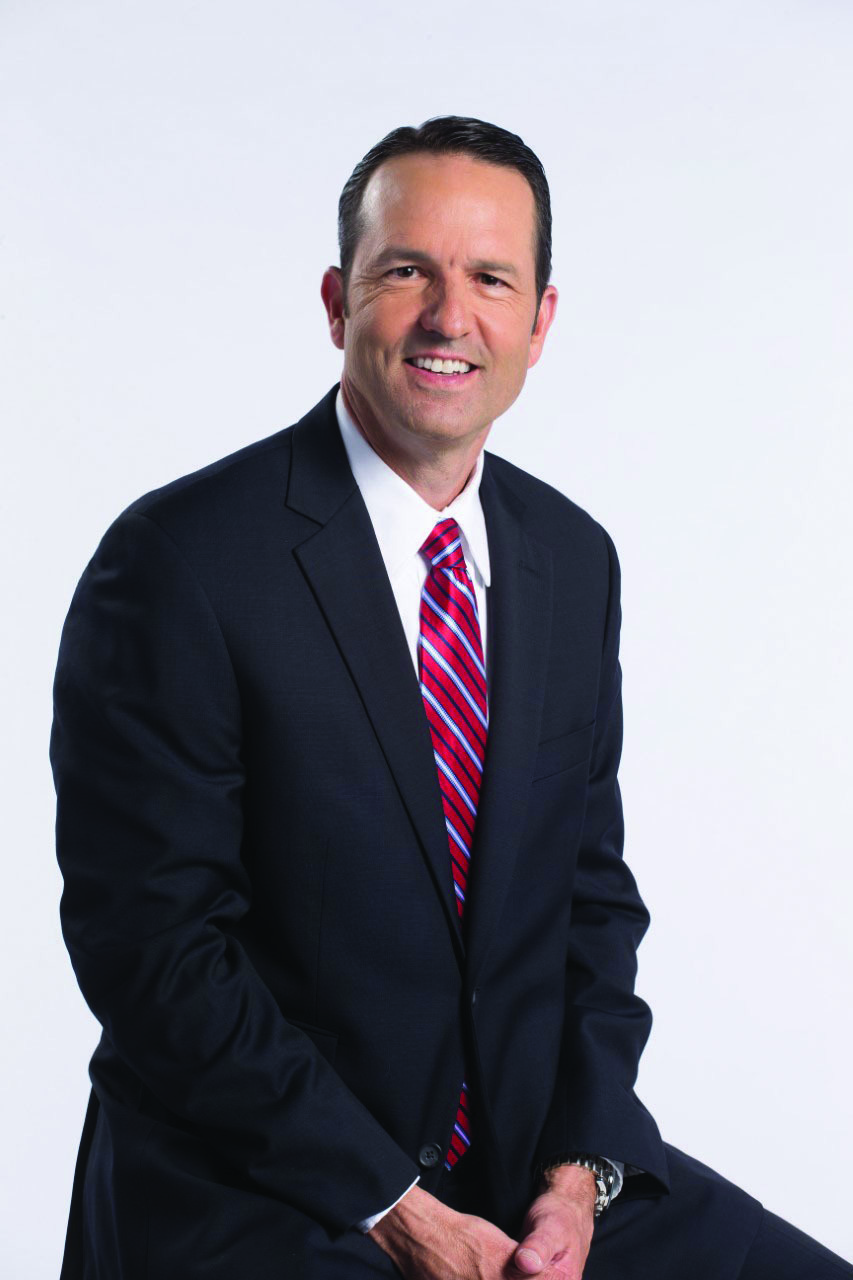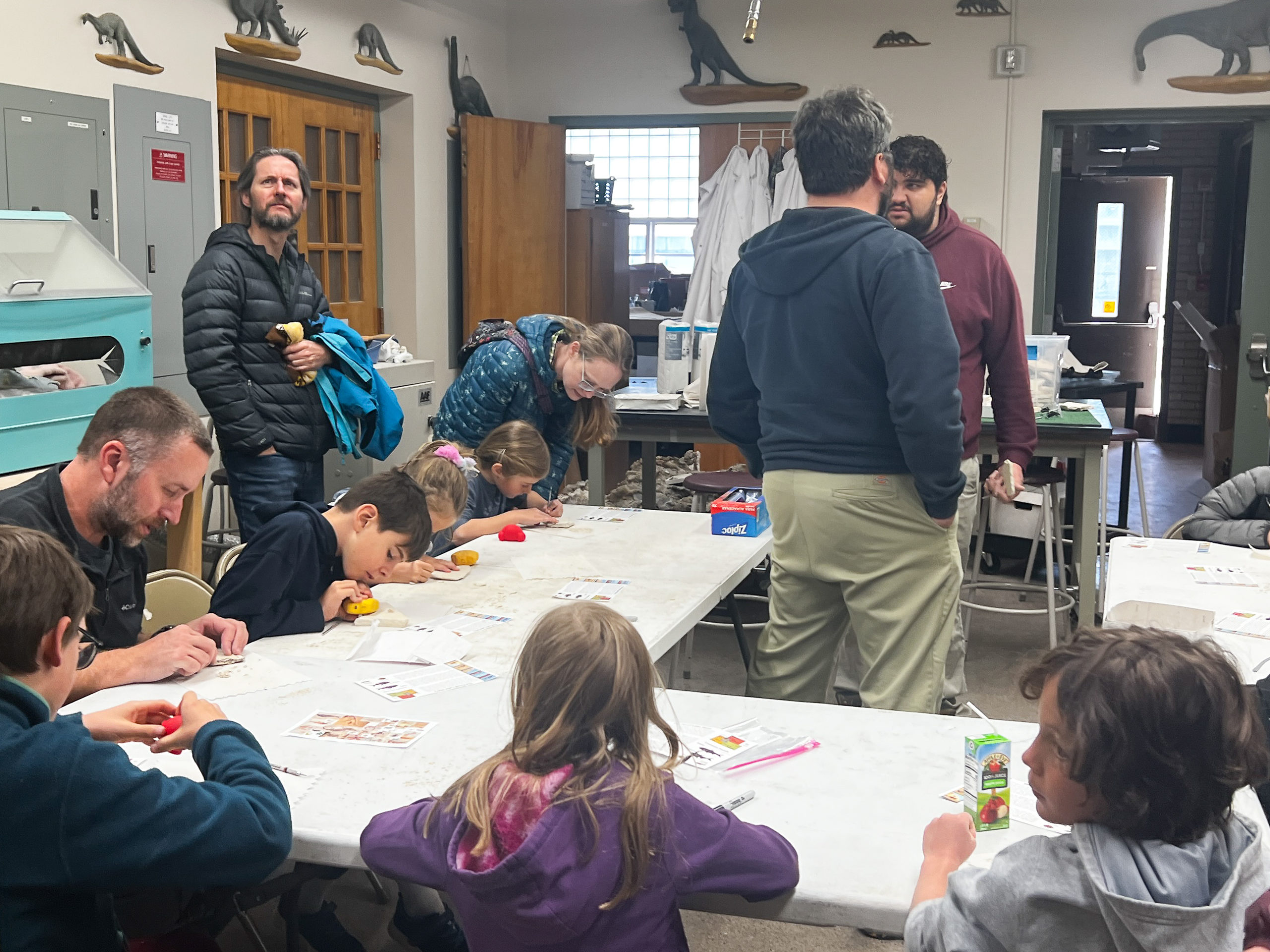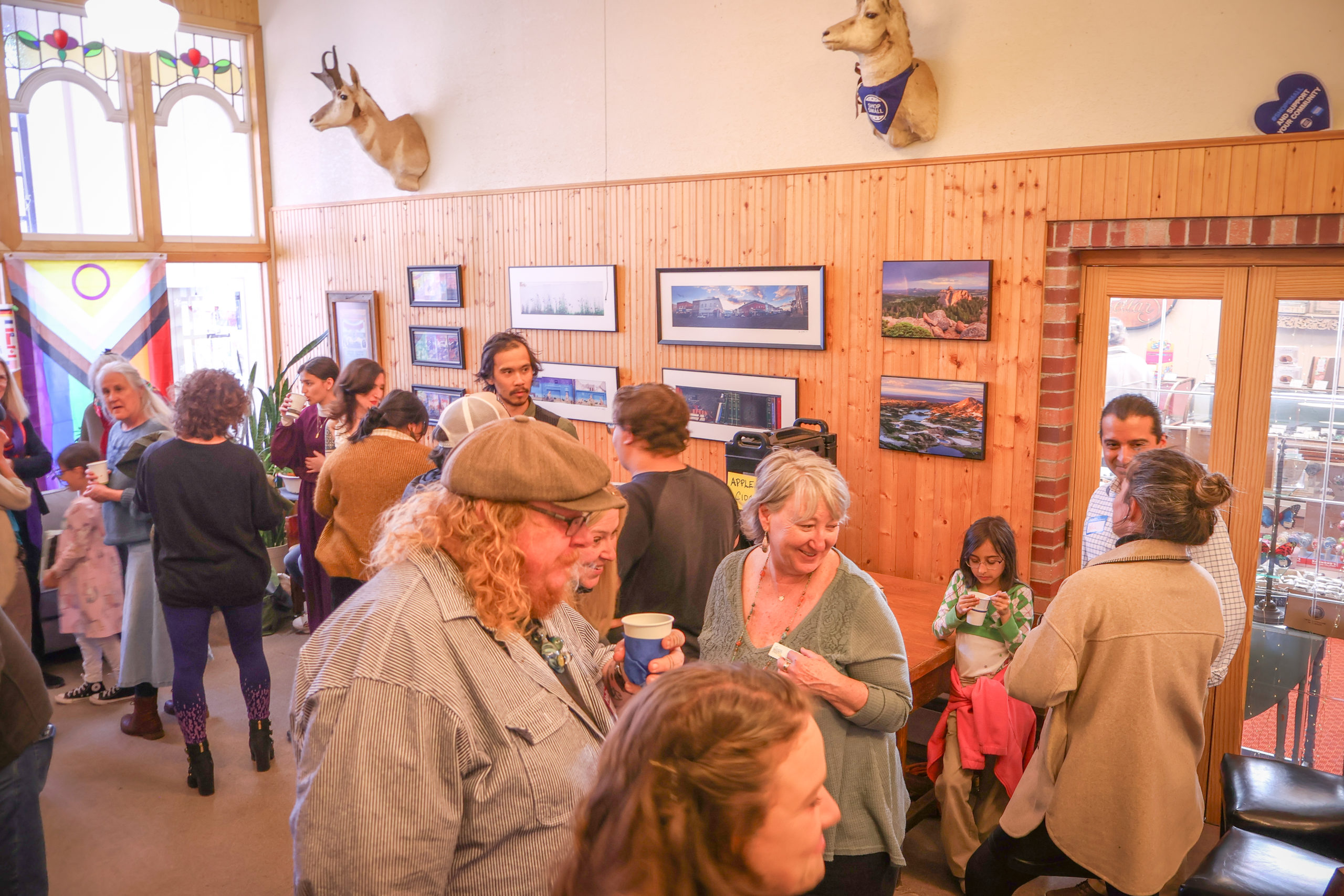BI: Tell me what a typical day is like for a Rockies Color Analyst.
JH: Well first, I do probably an hour and a half, hour to an hour and a half of prep work at home in the morning, just reading national baseball news and then more specific about mainly the other team because I know a lot of what’s going on obviously with the Rockies, but I’ll read the local papers from whatever team we’re playing.
So I get a lot of my information and put my notes down in my scorebook prior to going down to the stadium. But say it’s a 6:30 game, I will get to the stadium around 2:30 or 3 o’clock in the afternoon, write my lineups in, put some more notes down, go to the locker room, talk to a handful of guys and sometimes it’s not even about baseball, just checking in, see how they’re doing. Then, go watch batting practice after we listen to the manager give his 10 or 15 minutes of press briefings every day, go watch batting practice then after the Rockies’ batting practice, it’s the visitors’ batting practice and I will talk to various coaches or players that I know on those teams and do my work there.
Then about an hour before the game we have a pre-production meeting with our people in the truck going over the various graphics we will use throughout the game and make sure there’s no misspellings, all that’s good and make sure we understand the graphics that are going to be run. After that, go have dinner and then the last half hour before the game is just kinda my quiet time. I just sit back and relax because all my work is done until we get ready to do our open. And then, it’s fun because then it’s just the game, talking about baseball.
BI: Sounds like a long day!
JH: It is. It’s a lot longer than what people think. People think the game’s at 6:30 so we show up at 6 and just go on the air and there you go. But no, you’ve got to put in your prep work, you’ve got to be prepared because the thing with really any sport is nothing’s scripted. It’s not like typical television where you’re reading off a teleprompter. It’s all off-the-cuff, or it’s 3 hours of just talking. Yeah, you have notes, but nothing is scripted out.
BI: You have to come up with all of it.
JH: Exactly. You know, if the game’s interesting, it’s easy because you’ve got the game to talk about but occasionally, there’s a game that gets real lopsided one way or the other and you still have to be engaged, though. There’s a lot more that goes on than just showing up and saying, “Here we are, let’s talk baseball.”
BI: How did you get into this job and more specifically with the Rockies?
JH: [laughs] From Tracy Ringolsby, really is the cowboy and I go way back. When he was riding down in Texas and I was playing for the Texas Rangers we developed a friendship, I knew he was from Wyoming obviously from me going to school there, my wife’s from Cheyenne, so we’ve always had a pretty close connection and then in 2005, I get a call out of the blue from Tracy because I was coaching at the time with the Cubs saying that the Rockies and Fox Sports Rocky Mountain who we were called at the time, they were looking for somebody to replace Jerry Dipoto who decided to leave and get back into the management side of baseball. He asked if I’d be interested in at least talking to them and I said, “Sure, have him give me a call,” not thinking. You know, I didn’t study this in college, I was a finance major and why not? Let’s do this. And so they called and I went down and did a couple interviews and about two months later they offered me the job.
BI: So did you go right into this after playing baseball then?
JH: Well, after coaching. So, I played for 15 years and then I coached for five years in the Cubs system and really happy doing that, I enjoyed coaching, but with this opportunity to be able to be in a Major League Ballpark and be at home, it was just a great fit for me. It was very nerve-wracking to start with because I had no formal training whatsoever and basically it came down to a few lessons here and there. But when I went on the air Opening Day, that was my baptism. I look back on some of that now and really how it was so much harder than I thought it was going be that I’m just fortunate that they stuck with me and that here I am going into my 12th year now.
BI: Do you plan on staying there for a long time or would you ever sportscast anywhere else?
JH: Well, if it was up to me I would love to be here forever because I love covering the Rockies, I love being in this part of the country. It allows us the flexibility to get back up to Wyoming, there’s just so much to like about this area. I hope so, but sometimes those things are out of my control.
BI: Do you miss anything in particular about playing or coaching at all sometimes and what is that like?
JH: I think that every player goes through this whenever they retire, they miss the competition because you cannot duplicate it anywhere else in your life. You miss that pitcher against the batter or you miss the roar of the crowd when you make a great play, you miss the comradery in the locker room. But, a lot of guys I’d say, myself included, you don’t miss a lot of the other stuff that goes along with it. All the training, the 24-hour-a-day, you’re thinking about this, the slump, when are you going to get another hit? [laughs] Stuff like that, I think players don’t miss that at all, but they do miss the competition. I do miss a little bit of the coaching because I enjoy trying to teach players stuff that I didn’t know when I was playing and try to help further their career and make them a better ball player.
BI: With being an analyst, what’s your favorite moment you’ve experienced with the Rockies besides the ’07 World Series?
JH: [laughs] I think at the top of my list would be Todd Helton hitting the home run off of Saito in that ’07 run that they had where they swept the double header. That would have to be at the top of my list. Matt Holiday sliding into home in game 163. I think there’s been a couple things that have happened against the Rockies, but I’m still a baseball fan, so last year Ichiro getting a 3,000th hit and being able to call that, Clayton Kershaw throwing a no-hitter against the Rockies, although it was against them, a no-hitter is pretty cool. That’s the beauty of baseball is you never know what you’re going to see when you go to a ball park and sometimes it’s for you and sometimes it’s against you but at the end of the day it’s still baseball and baseball history being made.
BI: I bet you’ve seen a lot of exciting things over the years.
JH: [laughs] Sometimes I forgot until somebody brings it up, how fortunate I’ve been to be able to see and be a part of so many great games.
BI: I know that you’re down in Arizona for Fantasy Camp. So, do you play a part in a lot of things the Rockies do aside from just being a sports analyst? What is that like?
JH: Well it’s fun because we get to interact with a lot of fans and a lot of people that just love baseball. You talked about Fantasy Camp and being able to do that, they have this Client Batting Practice down at Coors Field which I’ve been involved with for the Rockies. In January, we did our Rockies caravan and I was a part of that, that came up to Laramie and spoke at the Marian Rochelle Gateway Center to about 250 people up there so that was fun for me. Then we went to a basketball game that night, so there is some interaction not only just calling baseball but some stuff in the off season where you just stay connected with everybody.
BI: Speaking of the off-season, what do you do? Are you always busy with Root Sports and the Rockies or are you doing your own thing?
JH: That’s the beauty of my job is I don’t call at any other sport so when the off-season comes, I just get to be a fan of a lot of different sports. I don’t have to worry about when I watch a game. I watch it just for the pure enjoyment of it. It’s really nice, but to some people it might seem weird, but to me, it’s normal. It’s the only thing I’ve ever done in my 32 years of baseball. When the off-season comes, now, it was different when I was playing because I had to keep in shape, but now, just broadcasting, there’s not much going on for me personally outside the house.
BI: So you really get that family time in, right?
JH: I do and that was the beauty of it too because all three of my kids played college athletics and so in the off-season I was able to watch them and just be a dad and enjoy that time and watch them do their sports.
BI: What are you a fan of, what kind of teams do you love?
JH: Well, obviously I am a Wyoming Cowboy fan because I was up to three games this year, so I’ve enjoyed watching them, I am a huge Denver Broncos fan, pretty much any of the local sports. The Colorado Avalanche, I like watching, I’m a big hockey fan so, there’s really not a sport I don’t watch, but I also am pretty loyal to my alma mater. I’ve been up to, I don’t know, three or four basketball games this year too, so it’s fun to go back there and still see a lot of the people that were there when I was playing.
BI: So glad to hear that rather than CSU.
JH: Oh gosh no. [laughs]
BI: Speaking of UW, I know you’re originally from Arizona, so what brought you out to UW? Was it baseball?
JH: Baseball, yeah. So Wyoming came down and played our junior college, I was going to school in Glendale, Arizona, a suburb of Phoenix and they came down to scrimmage us to get out of the cold, which I didn’t realize it was like that until I went to school up there. So, they came down and played us in a double header and I went six for eight, I got six hits and eight at bats and they had been talking to me before that and then after I had those good couple of games they wanted to bring me up there on a recruiting visit. So I flew up to Laramie at the beginning of May and they offered me a scholarship and I didn’t have many other offers. I had one other offer to La Mar University down in Beaumont, Texas and I just really fell in love with Wyoming when I went up there and that’s how I ended up in Laramie from Arizona.
Bi: What was it like playing college games versus the pro level games?
JH: There’s a certain difference between college and professional. College you really get that brotherhood, the guys that are no matter what, at the end of the day, you’re still buddies and believe it or not, three of my closest friends right now are my roommates from UW, and we all came up from different parts of the country but we all played on the baseball team together. It’s fun to still have that, you don’t get that as much in pro ball because money’s involved and there’s other aspects. Most guys start to have families and that becomes a priority so there’s no replacing college athletics and what happens during your college years.
Bi: You mentioned earlier that you were going to school for finance, so what were your plans coming here and studying finance? Did you want to do that for your career? What was your original goal?
JH: To play baseball. [laughs] I don’t know why I chose finance, I like numbers I guess and back then when I was there, I was there ’83 through ’85 and then I’ll tell you a little story after that but there wasn’t the mass of degree options that students have now. I wasn’t good in engineering you know, I didn’t want to be a teacher and so I thought the College of Business would be a great way to be well rounded and if something didn’t happen with baseball that I would be able to get a job somewhere somehow with a business degree, so that’s how I chose business. But, I didn’t end up graduating from UW until 2004 because after I left, I was still a credit short and I never had the time to go back and at the time you know, at least for the first 10 or 12 years there wasn’t any online that you could do either so you had to go back and sit in the classrooms which I couldn’t do with my schedule. So, eventually I called the school back up and they got me on the right path with some online classes and I walked across the stage in December of 2004 with my finance degree.
BI: So you never saw yourself going into being an analyst or did you consider it?
JH: No. I mean, I talked to people when I was playing and said you know, “Oh you can be a manager if you wanted to, you could do TV if you wanted to,” but your focus isn’t on that, your focus is on, “How can I be a better baseball player?” So that’s a hard transition for a lot of players after they get done playing is, “Well, what do I do next with the next 40 years of my life?” or whatever it may be because you’ve been so programmed to be an athlete and sole focus on that. I guess I thought about it in the back of my mind but I had no idea of how to even start the process and like I said, I was fortunate enough that Tracy called me out of the blue and said, “Why don’t you give it a shot and the worst they can do is say no,” and I said, “Sure, why not, let’s try something different.”
BI: Gearing back towards Laramie, what’s your favorite bar here?
JH: Well it’s not there anymore but it used to be the Parlor, which was down in between 1st and 2nd Street, I don’t know what it is now but I met my wife there. I also was a big fan of the Gallery or the Cowboy Bar. I never did the Buckhorn Roll. I was smarter than that. It’s funny because you go back there now and a lot of the places are still there and I’m like, “Oh yeah I remember that place, and that place…” [laughs]
BI: Is there anything you miss about Laramie?
JH: You know, I miss the people. I tell my wife, she’s from Cheyenne so when we get back there I just miss the people because they’re so genuine and down-to-Earth that in all the travels that I do, going to different parts of the country, you just don’t have that same feeling when you talk to people. Those people are real people and that’s what I miss most.
BI: What advice do you have for students who want to go in a field like this or who want to do sports casting?
JH: Get as many reps as you can and it doesn’t matter what sport it is. You just need to get behind the microphone because you learn something new each and every time you pick up the mic and it will challenge you to get better and it challenges you to learn something that maybe you thought you already knew. Believe it or not my son is going into broadcasting too, and he’s working for the Fredrick Keys for the Baltimore Orioles High A Club in Carolina as a radio announcer but in college he did field hockey, he did regular hockey, he did baseball, he did softball. I said just do whatever you can, it doesn’t matter what sport, your passion might be baseball, but if you learn about other things and just get behind the mic that’s the best advice that I can give you.
BI: Anything you’re looking forward to this Rockies season coming up?
JH: Well, I think the biggest thing I’m looking forward to is just seeing how this team is going to perform because there’s a lot of expectations from the players themselves and they really have this feeling that this year, next year, some special things could happen and that’s what I’m looking forward to because I kind of have that same feeling. There’s a lot of great things on the horizon.



